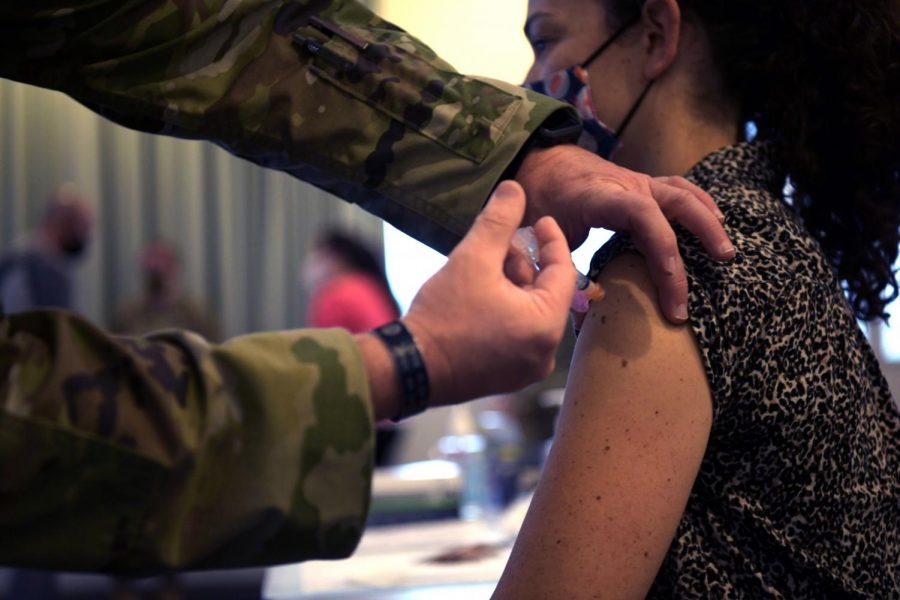Vaccine Rollout
Families and teachers await vaccines
Photo: Sydney Gleason
Registered dietitian receives the Moderna COVID-19 vaccine at Kadena Air Base in Japan on Jan. 29, 2021.
Washington State is currently in tier 1 of phase 1B of its COVID-19 vaccination plan. As vaccine distribution continues, the question on everyone’s minds remains, “‘when will it be my turn to get vaccinated?’”
This question is especially pertinent for teachers because they are a part of tier 2 of phase 1B as essential frontline workers. According to the District Medical Director for Kaiser Permanente in Seattle, Dr. Stephen Lavine, vaccination dates for teachers depend on how quickly the federal government supplies medical centers with vaccines.
“There’s about 1.5 million people in Washington in [phase] 1B, which is a lot of vaccines to give,” Lavine said. “Supplies have been very up and down so it’s likely to take some months before we’re done with 1B. And, the government could change the rules partway through.
Federal guidelines state teachers do not need to be vaccinated to teach in person, and Lavine believes that once vaccines are available to teachers, teachers should be required to return to school.
“Education is a critical aspect of our society’s needs, and if we’re able to reach a fairly high degree of safety through vaccinations, it’s hard to argue for people to choose not to be a part of [returning to school],” Lavine said.
Junior Jane Scroggs takes a different stance on students and teachers returning to school.
“If UPrep figures out a system for online schooling that doesn’t inconvenience teachers too much, it should be up to teachers and students’ families whether or not their kids attend school in person,” Scroggs said. “Families feel safe in different situations, and while the vaccine is very effective, you can still catch and transmit the virus if you’re vaccinated.”
Lavine also recognizes that vaccines and pandemic safety is a complex issue for many.
“There’s a lot of emotion around vaccinations, COVID, and exposure to COVID,” Lavine said. “People have different reactions to the risk they see with it. And even when that risk is small, people’s anxiety can be very high.”

